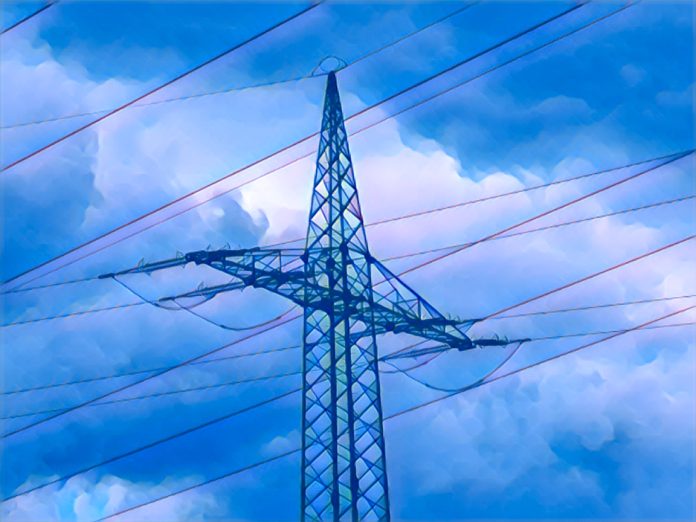KEY POINTS
-
The Nigerian federal government has signed a $328.81 million contract with China Machinery Engineering Corporation (CMEC) to upgrade and expand the country’s electricity transmission lines as part of the Presidential Power Initiative (PPI).
-
The project covers 544 kilometers of transmission lines with a load capacity of 7,140 megawatts, aiming to reduce power bottlenecks, improve reliability, and boost access for millions of Nigerians.
-
Officials describe the initiative as a transformative step toward solving Nigeria’s energy crisis, with potential benefits including economic growth, job creation, and enhanced living standards.
In a move aimed at revitalizing Nigeria’s power infrastructure, the federal government has signed a $328.81 million agreement with China Machinery Engineering Corporation (CMEC) for the construction and rehabilitation of critical transmission lines across the country.
The deal, which was finalized in Abuja on Wednesday, is part of phase one of the Presidential Power Initiative (PPI), an ambitious government-backed program intended to upgrade and expand Nigeria’s electricity transmission network.
The Cable reports that the project will cover engineering, procurement, construction, and financing, ensuring a holistic approach to infrastructure development.
Adebayo Adelabu, Nigeria’s Minister of Power, announced that CMEC would take the lead on implementing this key project. “The Chinese firm will be responsible for rehabilitating and constructing 330kV and 132kV transmission lines—vital components in our national grid,” he stated.
He further explained that the FGN Power Company, a special purpose vehicle (SPV) established by the federal government, will coordinate and oversee the implementation of the project under the PPI framework. The initiative is designed to address long-standing transmission challenges that have left Nigeria’s power generation underutilized and millions of citizens underserved.
Project targets grid efficiency
According to Minister Adelabu, the first phase of the initiative has been strategically divided into two priority batches to ensure maximum impact. “Priority one includes seven brownfield and 10 greenfield lines, totaling 544 kilometers of transmission lines with a load capacity of 7,140 megawatts,” he revealed.
He emphasized that the new infrastructure will serve as arteries in the national power system, carrying electricity from mid-stream transmission to homes, businesses, and industries. “This is not just a standalone project. It complements ongoing efforts to enhance mid-stream transmission. Our strategy spans from generation to the last mile of distribution,” Adelabu added.
Experts have long identified Nigeria’s weak transmission network as a critical bottleneck in the country’s electricity supply chain. Despite having an installed generation capacity exceeding 12,000 megawatts, actual transmission and distribution levels often fall significantly short, leaving much of the available power stranded.
The Minister noted that this investment directly addresses that challenge. “By upgrading and expanding the transmission network, we are removing one of the most significant constraints in the power value chain,” he said.
He also pointed out that the new infrastructure is expected to improve electricity access and reliability for millions of Nigerians, with a ripple effect that includes economic development, industrial productivity, job creation, and an overall boost in quality of life. “Today’s signing is a tangible demonstration of the federal government’s unwavering commitment, under President Bola Tinubu’s leadership, to deliver stable and reliable power to all Nigerians,” Adelabu asserted.
Kenny Anuwe, Managing Director of FGN Power Company, also spoke at the event. He underscored the significance of a robust transmission backbone in ensuring that generated electricity reaches the end users. “At FGN Power Company, our mandate is clear: to deliver improved power supply to all Nigerians. A robust and reliable transmission network is the backbone of a stable power sector,” he explained.
Anuwe praised the collaboration with CMEC as a forward-thinking move that bridges the gap between generation and actual supply. “This partnership is strategic. It ensures that our investments in generation infrastructure translate into real, everyday benefits for the Nigerian people,” he added.
CMEC, a subsidiary of China National Machinery Industry Corporation, has a global portfolio that includes infrastructure projects across Asia, Africa, and Latin America. Its expertise in power engineering is expected to bring much-needed technical capacity to Nigeria’s grid enhancement plans.
This new deal comes at a crucial time when the federal government is intensifying efforts to stabilize the power sector and shift toward a 21st-century-ready energy system. Industry analysts say successful implementation could mark a turning point in Nigeria’s long struggle with unreliable electricity.



